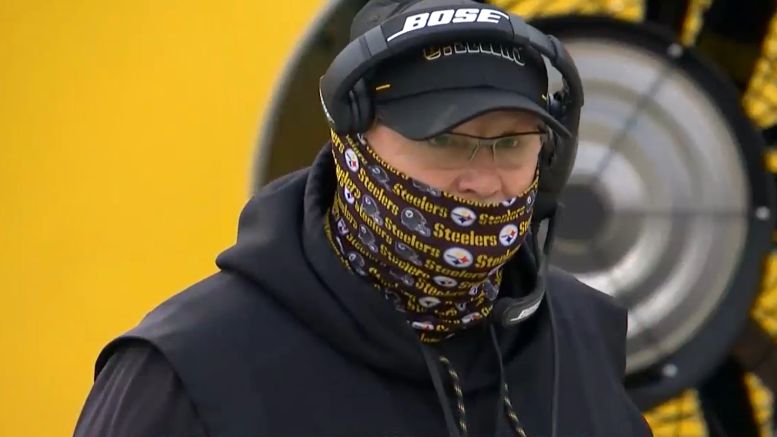The big buzz since the Pittsburgh Steelers’ 17 point comeback victory against the Indianapolis Colts was the difference between the Steelers’ lifeless first half compared with their resurgent second half. One report attributed that to Ben Roethlisberger taking the reigns and calling the offense in the second half after – reportedly – the Colts’ defense spent the first half calling out Pittsburgh’s plays.
Speaking to reporters as he does every Thursday, Fichtner was asked about the general idea of defense’s calling out plays and how to combat verbal cues in stadiums without fans.
“I think it’s interesting because the National Football League on both sides of the ball communicates really well,” Fichtner told reporters via a team transcript. “At any one given time, you are going to hear on a second down call, ‘Hey, watch the draw, watch the screen. Watch the deep ball.’ You hear these things all the time. Any time someone says something like that in game, it could have been any one of those three things and you might not have done any of that. There’s always communication. You see it, we feel it. One of the things now is it’s so quiet, you actually hear it. So, you can actually hear coaches on the sidelines. So, you are hearing different things. ‘Hey, watch the screen. Hey, watch the deep ball. He’s blocking.’ You get a whole lot more of that than you ever could have noticed before because of the loudness in the stadium.”
As Fichtner, Mike Tomlin, and several players have attested, a season largely without fans has been a game-changer. More than ever, defenses can pick up and hone in on every single thing an offense says and does. A quarterback’s cadence, checks and audibles, without any fan noise that could muffle those verbal cues. TJ Watt has mentioned how much it’s helped him defensively and opposing defenses are having a similar benefit.
Of course, sometimes, a defense can call out a play when everyone already knows what’s coming. Fichtner shared one such story from Sunday’s win.
“I kind of laugh about it. We ran our first iso play of this season. First one we ran, and we put Derek [Watt] in. He went to iso the linebacker. We didn’t have success with it. We didn’t win the down. But it was funny because young Chase Claypool ran off and said, ‘They were calling out that we are going to run the ball.’ Well, it was third down and 1 and, generally, we run the ball.”
Fichtner’s referring to the Steelers’ failed third and one conversion midway through the first quarter against the Colts. Benny Snell was dropped for a one-yard loss, forcing the Steelers to punt. What’s less funny is the offense’s struggles in short-yardage situations. No team in football has been as poor on 3rd/4th and 1 as Pittsburgh the last two years.
Fichtner said the level of communication that takes place in the NFL is one of the biggest differences between the college and pro game.
“There’s just so much communication and it’s always been a separator. Having spent a long time in college football, I always felt like since the day I got here I realized what my dad had always told me about how the level of communication is so much different the older you get. And when you get into professional football, it’s at a premium. It is just talking nonstop. You come out to practices; you hear the guys out there. From the time we start to to line up and then we line up and all the checks and everyone is doing stuff. A lot of communication.”
The story of “the Colts were calling the Steelers’ plays” certainly has a level of truth to it. But that’s less of a Steelers’ issue as it is an issue all offenses have had to deal with in 2020. Pittsburgh will have to find more ways to combat it as they gear up for the playoffs. Especially should they face a well-known opponent in the playoffs, like Cleveland or Baltimore, who already have a good feel for the Steelers’ language and scheme.








